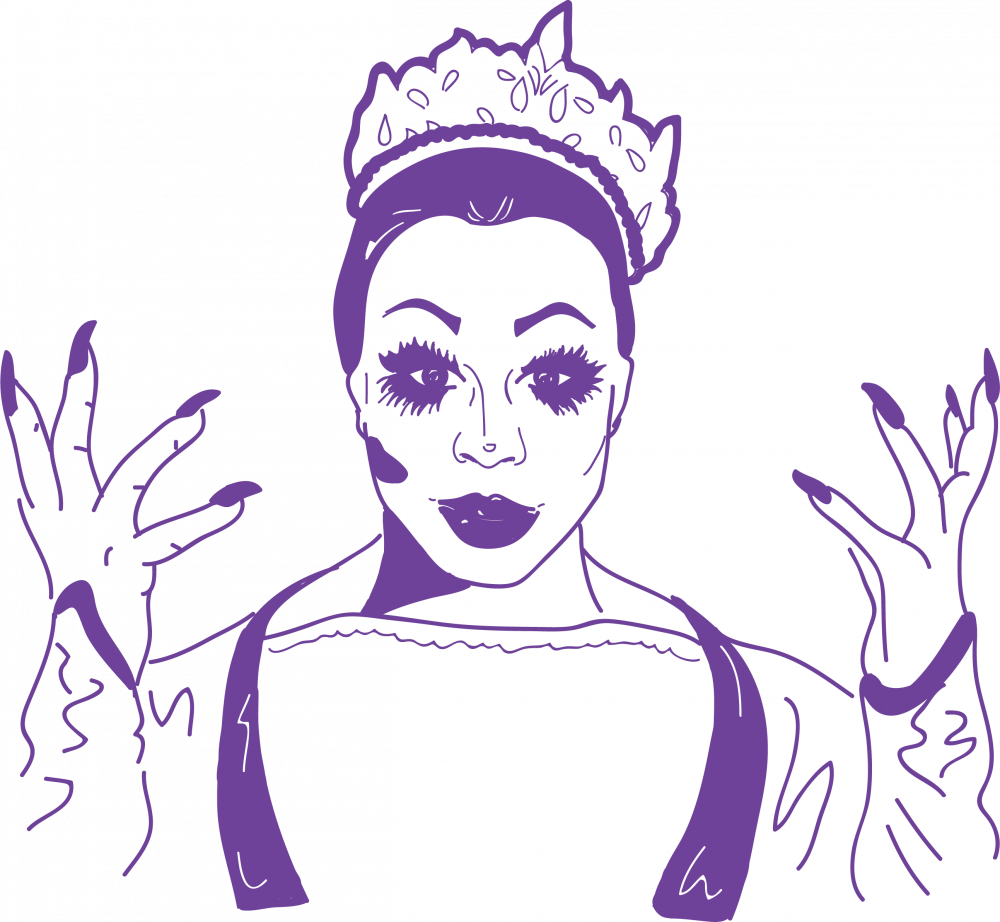Recently, the show “RuPaul's Drag Race” — now in it’s eleventh season — has come under fire for being racially biased. In 2018, writer and performer Phillip Henry published an article on the LGBT based platform them, critiquing the show’s namesake lack of action, writing that “queens of color who compete will continue to pay the price for Rupaul’s silence.” The most current instance fans have pointed out centers around the winners of “RuPaul’s Drag Race All Stars” season four. The top four of the most recent “All Stars” consisted of three queens of color — Naomi Smalls, Monét X Change, Monique Heart — and a Caucasian queen — Trinity the Tuck. Monét X Change and Trinity the Tuck both won — the first time in the series two queens were crowned.
Many fans expressed anger because three of the four top queens were black, but a white queen still received the crown. Of the 14 winners from “Drag Race” and “All Stars,” seven were white and seven identified as a different race. Regardless of this fact, this is not the first time viewers called out the show for racism.
Multiple queens have spoken out against both racism on the show and the fandom after leaving “Drag Race.” Season two winner, Tyra Sanchez, went on the online LGBT focused talk show “Hey Qween” and discussed how there remains an expectation for black queens to perform certain stereotypes to appear palatable for viewers. Katya Zamolodchikova of season seven discussed the double standards towards queens of color saying, “There is a significant racial component to the way that Jasmine and Acid were both treated during the show, on the show and more specifically, after the elimination.” The most vocal on this topic is drag queen The Vixen, who has voiced concerns about how RuPaul fails to address the issue of race on the show.
To look further into racism within the drag community, Arts and Entertainment sat down for an interview with Clinton Johnson, a former drag queen who performed under the name Jennifer D’ville. Johnson worked as an entertainer for 41 years, headlining local Charlottesville clubs such as The Silver Fox, Triangles and Club 216 for over a decade.
When asked if he believed “RuPaul’s Drag Race” contributes to racism within the drag community, he disagreed.
“I don’t think it’s true. I think there’s a certain amount of racism in everything you do, everything,” Johnson said. “I don’t see where RuPaul’s Drag Race would contribute anything racially because everybody is treated the same.”
Despite this, Johnson provided an insightful look into drag history. When describing his personal experiences as an entertainer, he noted racism, while present, played a minute role in comparison to classism. Johnson says classism was particularly pervasive within drag families — a group of drag queens headed by a drag mother who cared for and mentored her drag daughters. In the past, drag mothers acted as the chosen family for members of the LGBT community who were displaced by their biological family.
“It was more like the have and the have nots,” he said. “Oh, you have less than I have, or you’re not as well known, so you’re less than. So more than even the color issue was the ability to be known. It was a competitive type thing.”
He also mentioned the privileges afforded to white queens because of their race and class.
“Racism played a small part because if you were a well-dressed Caucasian female impersonator or illusionist, you stood a better chance of getting in,” Johnson said. “A lot of them did not understand that it's all about entertainment. It’s not about how beautiful you are … if you have no talent, you lose the audience still.”
This statement echoes the sentiments of The Vixen. When asked by Entertainment Weekly if to receive bookings queens of color must be likable, she responded, “Yes, just because our reactions are judged harsher … People judge my reactions, but they don’t take into account what I’m reacting to.”
Outside of racism, Johnson touches on another prejudice within the LGBT community saying, “One of the prejudices in the drag community is you have to make a decision. If you want to be gay, that’s fine, but if you want to be gay and do drag, we have a problem.”
This speaks to the misogyny perpetuated by many gay men. A substantial number of gay men shun feminine appearance and behaviors due to the close association with womanhood in a society that still perceives women to be inferior. In reality, much is owed to those activists who did not fall in line with societal gender norms such as drag queens, transgender individuals, butch lesbians, etc. Individuals from these groups were the first on the frontlines to fight for the rights of LGBT people.
Perhaps the most valuable piece of information Johnson shared was not about racism nor his experiences, but about how to move forward. His recommendation? Love. Love is what the gay community needs to “bridge the gap,” to eliminate internal division.
“When you love yourself, you thoroughly are able to love somebody else, and love can conquer all.”
The contributions of RuPaul to the LGBT community are innumerable. He has given drag queens a platform to showcase their talents, and helped gay culture to infiltrate American society. One can hardly scroll down their social media feed without seeing words like “slay,” “werk” or other verbiage originating from LGBT individuals.
However, there is still a long way to go. Issues of misogyny, racism, transphobia and more persist to this day. Rupaul’s shows may serve as the only exposure the masses have with the LGBT community, and yet they struggle to rectify said problems within their own microcosms.
At the end of every episode, RuPaul says, “if you can’t love yourself, how in the hell you gonna love somebody else?” These remarks closely mirror to those of Clinton Johnson. If only RuPaul practiced what they both preached.







